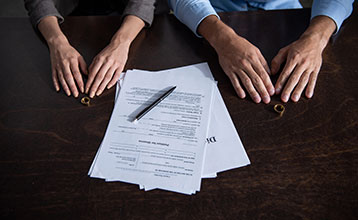The Singapore Government introduced the Mental Capacity Act in 2008 to address the increase in mental illnesses as the population ages. The Act came into effect in 2010.
Any Singaporean over the age of 21 can now plan for mental incapacity by appointing a person to make decisions on their behalf should they lose their mental capacity to make decisions in the future. The Act also allows parents of children with intellectual disabilities to approach the court to appoint a trusted person as deputy to make decisions for their children when the parents pass away.
The Mental Capacity Act was amended in 2016 to provide for professional donees and deputies. Individuals who do not have close friends or family members that they could appoint to act on their behalf can now appoint professionals.
The amendments also improved the operation of the Public Guardian Office.
There is a code of practice that provides guidance to how the Mental Capacity Act works in practice. Anyone appointed to act on behalf of someone who lacks mental capacity must refer to the code to carry out their duties according to the law.
How does the Mental Capacity Act protect a person who lacks capacity?
The Act aims to balance a person’s right to make their own decisions and the need to protect them where they lack the mental capacity to make those decisions.
Section 3 of the Act sets out five core principles that must be applied when making decisions on behalf of someone who lacks mental capacity:
- There is a presumption that the person has capacity unless it is established that they lack capacity.
- A person is not to be treated as unable to make a decision unless all practicable steps to help them do so have been taken without success.
- A person is not to be treated as unable to make a decision merely because they make an unwise decision.
- An act done, or a decision made on behalf of a person who lacks capacity must be done or made in their best interests.
- When acting or making a decision on behalf of a person who lacks capacity, the action or decision taken should be less restrictive on that person’s right and freedom to act.
From these principles, it is clear that the aim is to assist people who lack the capacity to make particular decisions, not to control or restrict them. The underpinning principle is that decisions or actions must be in the person’s best interest.
What constitutes “best interest’?
The Act does not define “best interest”. It will depend on many factors, including the person’s circumstances, age, health, and family situation.
However, best interest cannot be decided merely on a person’s age, appearance, condition, or an aspect of his behaviour. Such a narrow focus might lead others to unjustifiably assume what might be in the person’s best interest. (An aspect of behaviour could include talking to oneself, rocking back and forth, laughing inappropriately, etc.)
Section 6 of the Act sets out the steps to be followed when making decisions in the person’s best interest.
Amongst other factors, the decision-maker must consider whether it is likely that the person will have the capacity at some time to make a decision about the matter in question. If so, the decision must be delayed unless it is an emergency.
If reasonably ascertainable, they must consider the person’s past and present wishes and feelings and any beliefs and values that would likely influence the decision if the person had capacity.
The list of factors is not exhaustive; all relevant factors must be considered and weighed. The decision-maker should also consult with anyone close to the person who lacks capacity.
When does a person lack capacity?
Section 4 of the Act states that a person lacks capacity in relation to a matter if, at the material time, the person is unable to decide for themselves because of an impairment or a disturbance in the functioning of the mind or brain. It does not matter whether the impairment or disturbance is permanent or temporary.
When is a person unable to make a decision?
Under section 5, a person is unable to make a decision for themselves if they are unable to:
- understand information relevant to the decision;
- retain that information;
- use or weigh that information as part of the decision-making process; and
- communicate the decision in any way.
Take note: If the person can understand an explanation of the relevant information when given to them in an appropriate manner (simple language, visual aids, etc.), the person is not regarded as unable to understand the information.
Similarly, even if the person can only retain the relevant information for a short period, it does not prevent the person from being regarded as able to make a decision.
What is relevant information?
Information relevant to a decision includes the reasonably foreseeable consequences of deciding one way or another or failing to make the decision.
Protection for decision-makers
Section 7 of the Act provides protection against liability when caregivers and professionals perform their duties, as long as they have taken reasonable steps to determine that the person, in fact, lacks the mental capacity to make a decision and their actions are in the best interest of the person.
This protection, however, does not include protection against:
- liability for negligent acts or omissions;
- enrolling a person in a clinical trial;
- use of inappropriate restraint; and
- any acts not within the decision maker’s scope of authority.
Protecting yourself against future mental incapacity – LPA’s
If you wish to plan for possible mental incapacity in the future, you can do so by drawing up a Lasting Power of Attorney (LPA).
Under an LPA, you (the donor) can voluntarily appoint a person, called the “donee” to act on your behalf and make decisions relating to:
- your property and financial affairs, and
- personal welfare or your health care.
An LPA is a legal document. The donor (the person drawing up the LPA) must be 21 years old or older and have the mental capacity to draw up a valid LPA. The LPA will only take effect if and when the donor loses mental capacity.
The donor may give the donee wide-ranging authority or restrict the scope of authority to particular decisions.
A donee appointed to make decisions about your property and finances cannot make decisions about your healthcare unless you authorised the same donee to do both.
Who can be appointed as a donee?
A donee can be a family member or person you trust who is competent to make decisions and act on your behalf. It can also be a professional donee (an individual or organisation) paid to act as a donee.
The Act prescribes that a donee must be:
- a person older than 21 years old who provides the services without remuneration; or
- an individual who is a professional donee and is not related to the person by blood or marriage; and
- if the powers relate to the person’s property and affairs, the donee may also be a professional donee who is not an individual.
Donees must carry out their duties with reasonable care and skill. Donees who are paid for their services must meet a higher standard of care and skill.
How can the court protect a person who lacks mental capacity?
In general, the court can make declarations about whether a person has or lacks the mental capacity to make a particular decision about a specific matter.
The court may make declarations about whether acts or omissions made in relation to the person who lacks capacity is lawful; whether it was made in the person’s best interest.
The court may make specific decisions regarding the person’s property, financial affairs, or personal welfare if the person did not make an LPA.
Any decision the court makes must be in accordance with the section 3 principles and in the person’s best interest.
The court may decide that it is in the person’s best interest to appoint a deputy to make decisions on future matters or matters of an ongoing nature.
When appointing a deputy, section 20(4) of the Act requires the court to consider that:
- a decision by the court is preferred to the appointment of a deputy; and
- the deputy’s powers should be limited in scope and duration to what is reasonably practicable given the circumstances.
Who can be appointed as a deputy?
- a person older than 21 years old who provides the services without remuneration; or
- an individual who is a professional deputy and is not related to the person by blood or marriage;
- if the powers relate to the person’s property and affairs, the deputy may also be a professional deputy who is not an individual; and
- the deputy can be a family member, friend or trusted person, as long as the person is older than 21 years, of sound mind and not bankrupt.
Who oversees donors and deputies?
All appointed persons must use the code of practice to guide them in exercising their duties. The Office of the Public Guardian keeps a register of all LPA’s and deputies. The Public Guardian will supervise court-appointed deputies and handle any complaints received concerning any appointed donors or deputies.
Are there any decisions that may not be made on behalf of a person lacking mental capacity?
Yes, section 26 provides that certain decisions may not be made on behalf of a person who lacks mental capacity. These decisions include:
- Consenting to marriage
- Consenting to touching of a sexual nature
- Consenting to divorce based on three years separation
- Consenting to an adoption order
- Renouncing or adopting a religion
- Receiving treatment for change of gender
- Consenting to sexual sterilisation
- Consenting to terminate a pregnancy
- Consenting to Organ donation
- Making an Advanced Medical Directive
The Mental Capacity Act makes it clear that the law will respect decisions made by persons who have mental capacity. At the same time, the government will protect those individuals who lack the mental capacity to manage their affairs. The law explicitly protects these individuals against abuse or exploitation.
If you want to ensure that you are protected if you lack mental capacity in the future, or if you are concerned about a loved one, you should speak to a lawyer who can advise you on the best options for your circumstances.
Our Deputyship fees
Simplified (iFAMS)
$2,990
Regular


